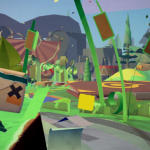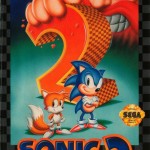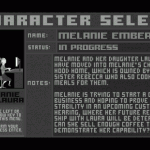When Games Matter is a weekly exploration by Drew Dixon of meaningful moments in games. Operating under the assumption that games do in fact matter, Drew seeks to highlight those moments that have much to say to say about who we are and the world we live in.
In light of our recent podcast on the year in videogames and our upcoming list of top games from 2011, I thought I would hand out a few more awards of my own–ones that will not make the list. Today I want to present to you my most disappointing game of 2011 as well as my favorite game review of the year.
That game is L. A. Noire and the review is Kirk Hamilton’s “paranoid existential videogame freakout” for Kill Screen Magazine.
First I will share my own disappointments with Noire then I will discuss Hamilton’s review. I was probably more excited about that game than any other release from this year, save for maybe Skyrim. I understand why people love the game. Noire is a very ambitious and I love much of what it is trying to do. Navigating free-to-roam 1947 Los Angeles was a unique and sometimes harrowing experience. Additionally, the facial animations in the game are the best I have ever witnessed on a console. Initially, this allowed for the game’s “reading people” mechanic far more interesting than I had expected it to be. The first few hours of L. A. Noire were fascinating, delightful even–I really wanted to be swept away by the world of L. A. Noire. Unfortunately Cole Phelps and the world around him messed all of that up.
The “reading people” mechanic which started out strong quickly became unpleasant. I can’t honestly decide if it was the character design of Phelps or the mechanic of interacting with people in three basic ways that ruined my Noire experience. When questioning people during investigations, you can either determine people to be telling the truth, lying, or you can doubt them and at the end of each interview, you will be told how many questions you got right. What killed these interviews is how Phelps responded to each person, when I would select “doubt” or “lie,” in exactly the same way–he gets in their face, threatens them, and accuses them of being the perpetrator. I found myself cringing every time I felt that I should doubt someone’s story, like I was approving of Phelp’s incessant bullying.
After accusing a distraught husband of murdering his wife, Phelps pats the man on the back and kindly asks him to call if he has any more information that would help in finding his wife’s killer. These types of jolting mood swings are so prevalent in the game that “face reading” mechanic quickly became torturous.
Additionally, the incessant comments from the residents of Los Angeles about Phelps don’t help:
It’s that guy from the paper! Solved the big case!
That’s him! The dirty cop. I hope his wife takes him for all he’s worth.
When I play videogames, I expect the story to center around me, however the best open world games present us with worlds so vibrant and complex that they seem as if they could easily go on without us. Playing L. A. Noire, however, never felt this way–after the illusion was broken, I realized that every citizen of the game existed to provide commentary on my progression and every interview only further simultaneously exalted Phelps as the city’s chief obsession, savior, and tyrant.
As Kirk Hamilton aptly put it, “This world exists for one purpose: to observe and—at limited, specific times—to react to Cole Phelps.” The sad part of all of this is that Cole Phelps does have a fascinating back story and there is part of me that wants to see him redeemed but the world of the game makes this impossible as Hamilton points out:
Cole Phelps is not looking for criminals; he is looking for absolution. He must make peace with his failings before he can finally let them go, and this gauzy straitjacket of a city will not let him rest until he has done so.
Maybe one day, I will garner the courage to revisit L. A. Noire and perhaps then I will appreciate the ambition with which the game was made. For now, however, playing L:AN just makes me feel like a jerk.










